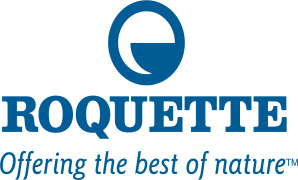News
Plant-based foods and drinks spur new ingredient development
21 Oct 2019The growing popularity of plant-based foods and beverages has boosted innovation among ingredient suppliers to meet diverse manufacturer demands, from dairy-free cultures for flavour and food safety, to flavours and emulsifiers for improved taste and texture.
Most recently, DuPont Nutrition & Biosciences introduced a dairy-free protective culture for fermented plant-based foods and beverages, which it claims prevents yeast and mould spoilage. The culture allows for longer shelf life, but also taps into broader industry trends, such as sustainability issues and food waste reduction, as well as demand for allergen-free foods, clean label ingredients, and of course, the rising trend toward plant-based eating.

DuPont’s figures suggest switching 5% of global dairy yoghurt consumption to plant-based alternatives could save 1.8 million tonnes of carbon emissions a year. And whether consumers make that switch due to concern about environmental impacts or for their own health, there is no doubt that it is a booming market. According to DuPont, global sales of fermented plant-based products grew an average of 43% a year from 2011 to 2018, with annual revenues from plant-based yoghurts now reaching €138 million in France, €75 million in the UK and €74 million in Germany.
Innovation in the plant-based ingredients sector is wide-ranging. Among the many companies to have introduced new ingredients to cater to the category, Chr Hansen has also developed cultures for fermented plant-based products, such as yoghurts and fermented drinks, while Palsgaard has developed emulsifiers specifically for use in dairy alternatives. Roquette offers a range of ingredients based on pea fibre and pea protein for plant-based foods, from dairy-free ice cream to meat alternatives; Avebe supplies potato-derived ingredients for dairy-free foods and gelatine-free confectionery; and Jungbunzlauer has introduced a range of minerals specifically for fortifying plant-based dairy alternatives.
Apart from its latest protective culture, DuPont also offers other cultures for fermented plant-based foods, such as yoghurts and fermented milk drinks, under its Danisco brand.
For the plant-based food and beverage market, the rapid building of this broad range of plant-based ingredients looks set to ensure the sector has a bright future, as product innovation is freed from concerns about the availability and functionality of plant-derived ingredients. Much attention currently is focused on meat and dairy equivalents, but as ingredient companies continue to develop solutions that straddle several industry mega-trends – from sustainability issues to clean label demands – it seems possible, and perhaps even probable, that new product developers one day could transcend current food categories, taking plant-based foods and beverages into entirely novel areas.
Related news

PepsiCo formulates ‘naked’ Cheetos and Doritos products
31 Dec 2025
US food giant PepsiCo has launched its Simply NKD range, a move it says reimagines its popular products with new formulations free from artificial flavours, dyes, and colours.
Read more
Debate over ban on ‘meaty’ names for plant-based products reaches stalemate
26 Dec 2025
The debate over a ban on plant-based products using “meaty” terms has reached a stalemate, leaving manufacturers in limbo and still facing overhauls to their marketing and packaging.
Read more
Has ‘clean’ had its day?
22 Dec 2025
Wielding clean-label positioning and fortification as marketing levers is a dangerous strategy, and brands would be better off explaining the hows and whys of the ingredients in their products, say experts.
Read more
Pioneers of circular plastic packaging push for new policies
18 Dec 2025
Some of the world’s largest food and drink companies have grown frustrated at investing in circular packaging systems, as the majority “wait on the sidelines”.
Read more
Whole Foods Market forecasts fibre frenzy for 2026
11 Dec 2025
Whole Foods Market has released its top 2026 trends, predicting that a fibre frenzy will take place next year as health-conscious consumers seek out nutritious, filling options.
Read more
Sorghum emerges as better-for-you hero ingredient
9 Dec 2025
With the launch of Novak Djokovic’s sorghum-based brand, the grain’s popularity in the better-for-you snacking sphere is on the rise, thanks to its nutritional and sensory properties.
Read more
Innovation promise in 'maturing' plant-based dairy alternatives market
8 Dec 2025
Plant-based dairy is a maturing market that still faces significant hurdles around taste, functionality, nutrition, and price, but industry is innovating fast, according to experts speaking at Fi Europe.
Read more
Turning global trade challenges into opportunities
4 Dec 2025
While our food innovation ecosystem is in a healthy place, certain barriers persist. A panel of experts at Fi Europe shared their ideas and strategies for overcoming these, to fully unleash Europe’s potential.
Read more
Celebrating the winners of the Fi Europe Innovation Awards 2025
3 Dec 2025
Food industry stakeholders celebrated as the winners of the Fi Europe Innovation Awards were announced at a ceremony in Paris.
Read more
Yuka’s food scanning app helps consumers make healthier choices
2 Dec 2025
Global food scanning app Yuka helps consumers understand the content of their shopping baskets and shapes producers’ reformulation plans.
Read more




